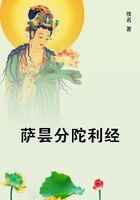The day on which Theodore de Beze and Chaudieu arrived in Paris, the court returned from Rheims, where Charles IX. was crowned. This ceremony, which Catherine made magnificent with splendid fetes, enabled her to gather about her the leaders of the various parties.
Having studied all interests and all factions, she found herself with two alternatives from which to choose; either to rally them all to the throne, or to pit them one against the other. The Connetable de Montmorency, supremely Catholic, whose nephew, the Prince de Conde, was leader of the Reformers, and whose sons were inclined to the new religion, blamed the alliance of the queen-mother with the Reformation. The Guises, on their side, were endeavoring to gain over Antoine de Bourbon, king of Navarre, a weak prince; a manoeuvre which his wife, Jeanne d'Albret, instructed by de Beze, allowed to succeed.
The difficulties were plain to Catherine, whose dawning power needed a period of tranquillity. She therefore impatiently awaited Calvin's reply to the message which the Prince de Conde, the king of Navarre, Coligny, d'Andelot, and the Cardinal de Chatillon had sent him through de Beze and Chaudieu. Meantime, however, she was faithful to her promises as to the Prince de Conde. The chancellor put an end to the proceedings in which Christophe was involved by referring the affair to the Parliament of Paris, which at once set aside the judgment of the committee, declaring it without power to try a prince of the blood. The Parliament then reopened the trial, at the request of the Guises and the queen-mother. Lasagne's papers had already been given to Catherine, who burned them. The giving up of these papers was a first pledge, uselessly made by the Guises to the queen-mother. The Parliament, no longer able to take cognizance of those decisive proofs, reinstated the prince in all his rights, property, and honors.
Christophe, released during the tumult at Orleans on the death of the king, was acquitted in the first instance, and appointed, in compensation for his sufferings, solicitor to the Parliament, at the request of his godfather Monsieur de Thou.
The Triumvirate, that coming coalition of self-interests threatened by Catherine's first acts, was now forming itself under her very eyes.
Just as in chemistry antagonistic substances separate at the first shock which jars their enforced union, so in politics the alliance of opposing interests never lasts. Catherine thoroughly understood that sooner or later she should return to the Guises and combine with them and the Connetable to do battle against the Huguenots. The proposed "colloquy" which tempted the vanity of the orators of all parties, and offered an imposing spectacle to succeed that of the coronation and enliven the bloody ground of a religious war which, in point of fact, had already begun, was as futile in the eyes of the Duc de Guise as in those of Catherine. The Catholics would, in one sense be worsted; for the Huguenots, under pretext of conferring, would be able to proclaim their doctrine, with the sanction of the king and his mother, to the ears of all France. The Cardinal de Lorraine, flattered by Catherine into the idea of destroying the heresy by the eloquence of the Church, persuaded his brother to consent; and thus the queen obtained what was all-essential to her, six months of peace.
A slight event, occurring at this time, came near compromising the power which Catherine had so painfully built up. The following scene, preserved in history, took place, on the very day the envoys returned from Geneva, in the hotel de Coligny near the Louvre. At his coronation, Charles IX., who was greatly attached to his tutor Amyot, appointed him grand-almoner of France. This affection was shared by his brother the Duc d'Anjou, afterwards Henri III., another of Anjou's pupils. Catherine heard the news of this appointment from the two Gondis during the journey from Rheims to Paris. She had counted on that office in the gift of the Crown to gain a supporter in the Church with whom to oppose the Cardinal de Lorraine. Her choice had fallen on the Cardinal de Tournon, in whom she expected to find, as in l'Hopital, another /crutch/--the word is her own. As soon as she reached the Louvre she sent for the tutor, and her anger was such, on seeing the disaster to her policy caused by the ambition of this son of a shoemaker, that she was betrayed into using the following extraordinary language, which several memoirs of the day have handed down to us:--"What!" she cried, "am I, who compel the Guises, the Colignys, the Connetables, the house of Navarre, the Prince de Conde, to serve my ends, am I to be opposed by a priestling like you who are not satisfied to be bishop of Auxerre?"Amyot excused himself. He assured the queen that he had asked nothing;the king of his own will had given him the office of which he, the son of a poor tailor, felt himself quite unworthy.
"Be assured, /maitre/," replied Catherine (that being the name which the two kings, Charles IX. and Henri III., gave to the great writer)"that you will not stand on your feet twenty-four hours hence, unless you make your pupil change his mind."Between the death thus threatened and the resignation of the highest ecclesiastical office in the gift of the crown, the son of the shoemaker, who had lately become extremely eager after honors, and may even have coveted a cardinal's hat, thought it prudent to temporize.
He left the court and hid himself in the abbey of Saint-Germain. When Charles IX. did not see him at his first dinner, he asked where he was. Some Guisard doubtless told him of what had occurred between Amyot and the queen-mother.
"Has he been forced to disappear because I made him grand-almoner?"cried the king.
He thereupon rushed to his mother in the violent wrath of angry children when their caprices are opposed.















